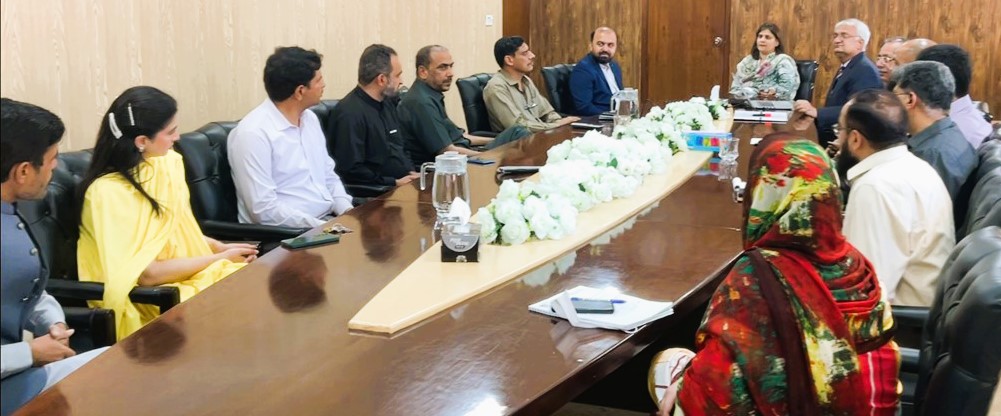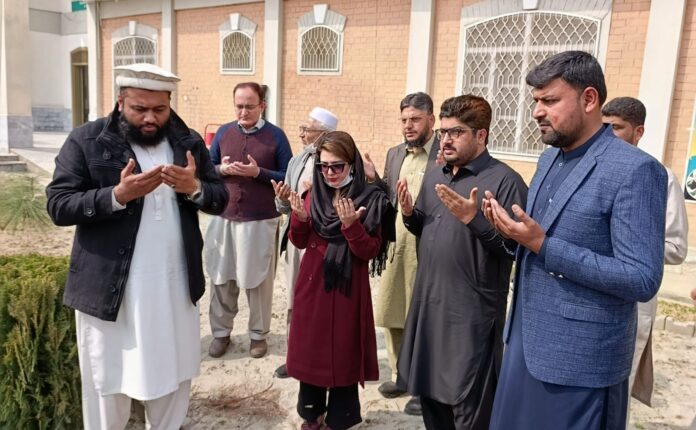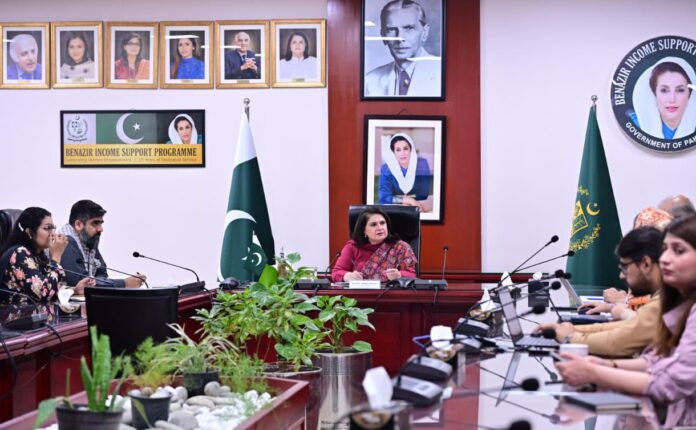The Chairperson, National Vocational and Technical Training Commission (NAVTTC) Mrs. Gulmina Bilal Ahmad visited the National Skilled University (NSU) in Islamabad. On arrival, he was greeted by the Chancellor’s office team. He then explained about the university’s initiatives and work in vocational education.
In that meeting, which includes the participation of senior academics, management and IT staff, Prof. dr. Mohammad Mukhtar gave detailed information about NSU’s contribution and ongoing projects. One of the highlights was the presentation of the UNESCO/UNEVOC Co-operation Initiative 2022 Pilot Edition report entitled “The future of TVET: a study based scenario of the trends driving the sector’s development and future strategic directions”. The report was compiled jointly by six international partners, including NSU.
The discussion of NAVTTC and NSU participants was about the “Digitalization in TVET” initiative jointly developed by China’s Shenzhen Polytechnic University and partners from Malaysia, Vietnam, Singapore and the Philippines. This initiative, which is a follow-up to the UNESCO/UNEVOC Partnership Project, shows the involvement and continuous commitment of NSU to the development of professional education through digital means.
The Deputy Prime Minister and his team gave information about the ongoing short vocational courses and the role of the advisory board. This board, made up of industry leaders, helps design curricula that meet the demands of the labor market. NAVTTC Chairman asked the NSU students to participate in the job fair to be held in Islamabad thus improving their job opportunities.
NSU’s efforts to digitize skill education programs were also discussed and the NAVTTC chairman agreed to cooperate in creating a blended learning system for vocational programs that meet national and international standards. In addition, the role of universities in setting global standards for the evaluation of professional/vocational programs is highlighted. NSU is currently involved in a project to create a new international self-assessment tool for Vocational Training Centers (ISATCOV) funded by the European Union, and the NAVTTC chairman said he would support this initiative as well.
Mrs. Gulmina Bilal Ahmad advises the NSU administration to request the qualification of awarding crew status from NAVTTC, the vice chancellor immediately directs her team to speed up the process. They were also informed about various professional courses conducted at NSU Sarmad Tanveer Campus, Muridke, Sheikhupura with the support of NAVTTC. NAVTTC Chairman suggested that similar courses should be offered in Central Universities. The NSU team agreed to comply with this directive.
Further discussions led to the decision to jointly revive the Turkish Cooperation and Coordination Agency (TIKA) project. The project aims to create a world-class hospitality center at NSU Islamabad. In this case, NSU will share the project with NAVTTC.
The head of the NAVTTC proposed opening up skills courses for the differently abled, including Be My Eyes, a Danish mobile app designed to help blind and partially sighted people recognize objects and manage daily tasks. The Deputy Prime Minister told him that the NSU had been working on this and had identified Syed Sardar Ahmed Pirzada, Pakistan’s first blind journalist, an active user and mentor of the program, as the source.
Ms. Gulmina Bilal Ahmad visited the workshop at the university and appreciated the skills training initiative that includes digital and traditional methodologies. He also witnessed a demonstration of an electric bicycle developed by the teachers of the Department of Electrical Engineering.
During the visit, fruitful discussions and strategic agreements aimed at the development of vocational and technical education, digitization initiatives and inclusive curricula promise important progress in the sector that meets national and international standards.
NAVTTC Chairperson’s Visits National Skills University Islamabad






